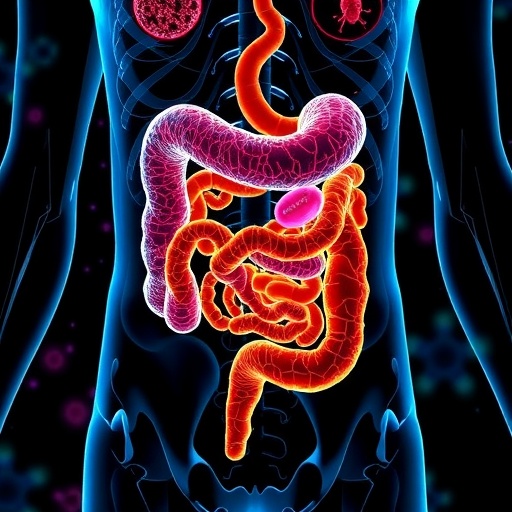A groundbreaking and meticulously detailed new review sheds light on the intricate interplay between fecal microbiota transplantation (FMT) and cancer immunotherapy, revealing both its transformative potential and the formidable challenges it presents. Published in the prestigious journal Gut Microbes, this comprehensive analysis dives deep into the evolving, and at times controversial, landscape of manipulating the gut microbiome to boost the efficacy of immune checkpoint inhibitors (ICIs), a frontline therapy revolutionizing cancer treatment. The study, led by Dr. Peng Luo of Southern Medical University, synthesizes findings from various clinical trials and experimental investigations spanning melanoma, colorectal cancer, and several other solid tumors, offering a panoramic view of an emerging frontier in oncology.
Immune checkpoint inhibitors have redefined therapeutic paradigms by unleashing the immune system’s latent capacity to recognize and annihilate cancer cells. However, resistance to ICIs remains a critical bottleneck in clinical success, with many patients experiencing suboptimal responses or relapse. Mounting evidence implicates the gut microbiome—an extraordinarily diverse and dynamic ecosystem of trillions of microorganisms—in modulating immune function and influencing therapeutic outcomes. FMT, the transfer of fecal material containing microbial communities from healthy donors to patients, has surfaced as a compelling strategy to recalibrate impaired microbiota and restore immune responsiveness, yet its clinical application in oncology is fraught with complexities.
.adsslot_IlV5i61dcD{ width:728px !important; height:90px !important; }
@media (max-width:1199px) { .adsslot_IlV5i61dcD{ width:468px !important; height:60px !important; } }
@media (max-width:767px) { .adsslot_IlV5i61dcD{ width:320px !important; height:50px !important; } }
ADVERTISEMENT
Central to the review’s insights is the recognition that the gut microbiome functions as an intricate ecological network, where compositional and functional attributes of microbial taxa orchestrate distinct immunomodulatory effects. Beneficial commensals have been shown to potentiate cytotoxic T cell activity and facilitate infiltration of effector immune cells into the tumor microenvironment. Conversely, adverse bacteria may foster regulatory immune populations, such as myeloid-derived suppressor cells (MDSCs) and regulatory T cells (Tregs), which blunt antitumor immunity and promote tumor persistence. These antagonistic interactions underscore the challenge of engineering microbial consortia that predictably augment immunotherapy.
Moreover, individual patient factors, including baseline microbiome diversity, genetic predispositions, diet, and concurrent medications, intricately influence FMT outcomes. “We were particularly surprised by the observation that identical bacterial species can exert diametrically opposed effects depending on host context,” notes Dr. Luo. This revelation pinpoints the paramount necessity for personalized microbiome therapeutics that accommodate the host’s unique biological landscape rather than indiscriminately applying generalized microbial formulations.
Another pivotal aspect highlighted in the review concerns donor selection criteria. The choice of donor microbiota emerges as a critical determinant of therapeutic success or failure. Donors with high microbial diversity and enriched populations of immunostimulatory bacteria tend to produce superior clinical outcomes. Nonetheless, the absence of standardized donor screening protocols and microbial characterization methodologies presents a significant hurdle in developing reproducible and reliable FMT-based immunotherapy adjuvants.
The authors also discuss the underlying mechanistic pathways through which gut bacteria interface with immune checkpoint blockade. Specific microbial metabolites, such as short-chain fatty acids (SCFAs), and bacterial-derived molecular patterns engage pattern recognition receptors on immune cells, modulating downstream signaling pathways that either prime antitumor immunity or facilitate immune evasion. Metabolomic and transcriptomic profiling of patient samples pre- and post-FMT further unravel the complex crosstalk between microbial metabolic outputs and host immune gene expression networks.
From a translational perspective, the review strongly advocates for the initiation of large-scale, multicenter clinical trials to systematically evaluate FMT efficacy and safety in conjunction with ICIs across diverse cancer types. Such trials must integrate rigorous microbiome sequencing, immune phenotyping, and functional assays to delineate biomarkers predictive of response and adverse events. Integration of computational models to predict optimal donor-recipient microbial matches could revolutionize patient stratification and treatment personalization.
Emerging technological advances in synthetic biology and microbial engineering offer tantalizing prospects to refine FMT approaches. Designer microbial consortia, genetically optimized to amplify antitumor immune mechanisms while minimizing off-target effects, represent the next evolutionary step beyond crude fecal transfers. Such innovations may overcome current limitations by allowing precise modulation of key immunological pathways and tumor microenvironment conditioning.
Safety considerations remain paramount, given the potential risks associated with transferring pathogenic or deleterious bacteria. The review calls for the development of standardized protocols encompassing donor screening, microbial characterization, and post-treatment monitoring to mitigate risks. Regulatory frameworks must evolve concurrently to oversee the clinical deployment of microbiome-based therapeutics and ensure patient protection.
As the field advances, Dr. Luo envisions a future where oncologists harness the gut microbiome as a precision tool, integrated seamlessly with conventional immunotherapies to transform cancer treatment outcomes. “Our findings illustrate a journey from chaos to order in the realm of fecal microbiota transplantation, highlighting the imperative for nuanced, scientifically grounded approaches to unlock its full potential,” he concludes.
This rigorous review represents a critical inflection point in cancer immunology, offering a roadmap for translating microbiome science into tangible clinical benefits. By elucidating the multifaceted influences of gut bacteria on immune checkpoint inhibitor efficacy, it sets the stage for a new era of microbiome-informed, patient-centric cancer therapies aimed at conquering resistance and achieving durable remissions.
Subject of Research: Cells
Article Title: From chaos to order: optimizing fecal microbiota transplantation for enhanced immune checkpoint inhibitors efficacy.
Web References: http://dx.doi.org/10.1080/19490976.2025.2452277
Keywords: Cancer immunoediting
Tags: cancer immunotherapy enhancementchallenges in microbiome researchclinical trials on gut microbiomefecal microbiota transplantationgut microbiome transplantsimmune checkpoint inhibitorsmicrobial communities and immune responsemicrobiome and cancer treatmentoncology and microbiotaovercoming resistance to immunotherapyrole of gut microbiome in cancer therapytransformative potential of FMT





